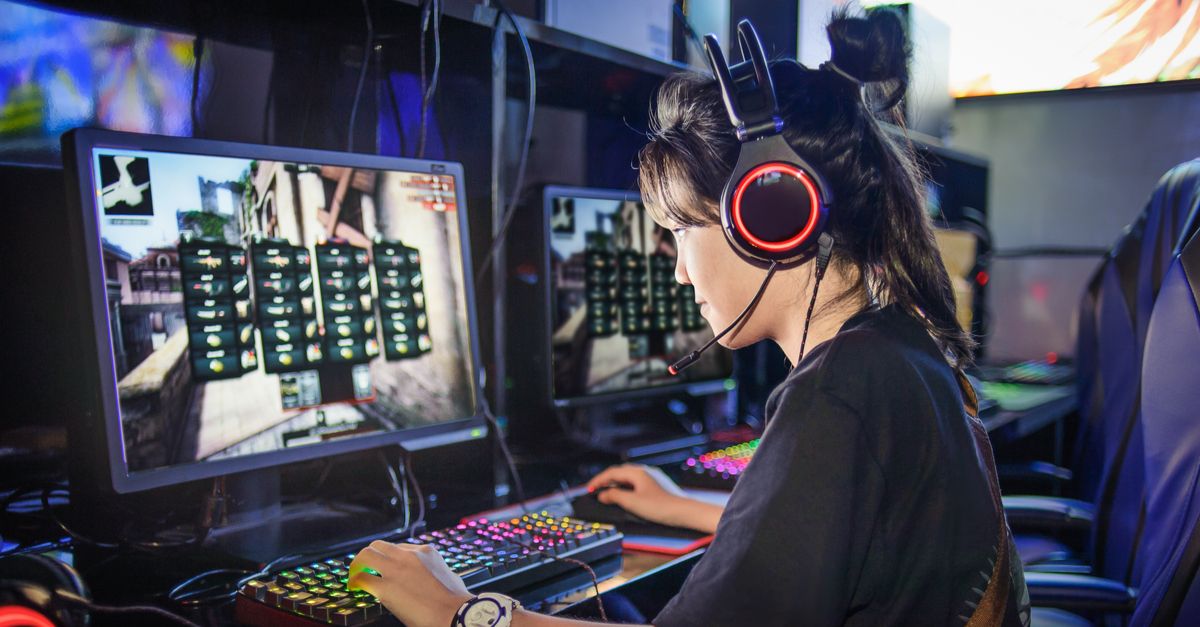Almost three in four online gamers find themselves feeling less social thanks to high levels of harassment in online games, according to a survey out from the Anti-Defamation League (ADL). Trolling, stalking, sexual harassment and humiliation have become so bad that one in ten respondents had depressive or suicidal thoughts. The biggest target? Female gamers.
The survey of 1,045 American adults, conducted for the ADL by games and esports analyst Newzoo, included responses from 751 people who play multiplayer online games. It found that 74% of gamers had experienced harassment while playing games online. Almost two thirds (65%) had experienced severe forms of harassment, including physical threats, stalking, and sustained harassment, and 29% of people had been doxed, having their personal information exposed online.
The harassment has direct physical consequences. Of the respondents, 8% said that they had taken steps to protect their physical safety, while 7% had their school or college performance negatively affected. 5% – that’s one in 20 people – had contacted the police because harassment had become so bad.
What are all these online trolls and stalkers getting so upset about? Gender and sexual orientation, mostly. These factors featured in 38% and 35% of cases respectively, while race and religion were also popular topics for online bigots.
The most common form of harassment that people reported was offensive name calling, followed by trolling. Discriminating against people and humiliating them were close in joint third place. Physical threats and sexual harassment were less common while stalking was the least prevalent, but even that was worryingly high; more than one in three respondents claimed to have been stalked online.
People who get harassed in games react in various ways. Most of them simply manage who they play with, but some change how they play by doing things like not using their game mics. Nearly one in five (19%) reported leaving games to escape harassment.
It’s worth pointing out that there were also positive experiences in gaming. Of the survey base, 88% said that they had experienced positive social interactions, including making friends (51%). Almost one in three (30%) felt like they belonged to a community in online games, which is encouraging, and 32% discovered new interests. Another positive: 13% found a partner through an online game.
Unfortunately, positive and negative experiences aren’t mutually exclusive. A significant number of people (43%) who had a positive experience quit or started avoiding at least one game because of harassment.
ADL recommended that games developers and publishers introduce more tools to moderate content across different channels, including voice chat. Companies could also introduce ratings that account for the level of harassment in specific games, it said.

Anonymous
If nice people quit because they don’t like the toxic culture, then all you have left are the toxic ones.
Rob
It’s sad that people are so rude to others just because they aren’t in front of them, also it is sad that people could be so fragile that it could cause suicidal thoughts. Trash talking during any game is somewhat common though.
Annon
This is why I personally prefer to play games on my own servers and invite those I can tolerate. Then again learning how to handle bullying (And cyber bullying) is something that is no longer learned due to the massive efforts of filtering out bullying in the lives of younger generations. What we may not realize is that bullying does have a purpose…. (Though a cringe worthy one at that) The lack of bullying can lend to overconfidence, inability to adapt to adverse situations and the expectation of entitlements in the real world for the younger generations. Sure bullies were usually horrible or misunderstood people… but they did lend to the teaching of resiliency, adaptivity and sometimes they even tamed inappropriate behavior (In the incorrect way) that could not normally not be curbed (lawfully).
It will be interesting to see how the newer generations are able to handle real life. So far it is not overly impressive.
Gaming, Social Media and online interactions may be one of the final frontiers for bullying….
Anonymous
so…it’s representative of the Internet at large? And maybe even life? Another non-story
Anon
There’s this awesome invention put into pretty much all online multiplayer games – player mute.
MrGutts
So what’s it called when physical sports based players give you crap or taunt you for being bad during a game?
Kyle
Same as online, Trash Talking. But this isn’t what this article is about. read the things they talk about cyber stalking and sexual harassment are not normally something you have to deal with when face to face with someone.
On the other hand, Physical threats are. And sometimes more than just threats. The main point of this story i stand behind and that is that more thought should be put into online games and how to deal with harassment. Not because someone inst tough enough to handle it, but because young people are actually taking there own lives because of this sort of thing.
Paul Ducklin
In Autralian English (and now widely throughout the Commonwealth) it’s known as “sledging”. Whether that’s a metaphor derived from “sledgehammer” or from the notion of being run over by a sledge and carved up by the runners I have no idea…